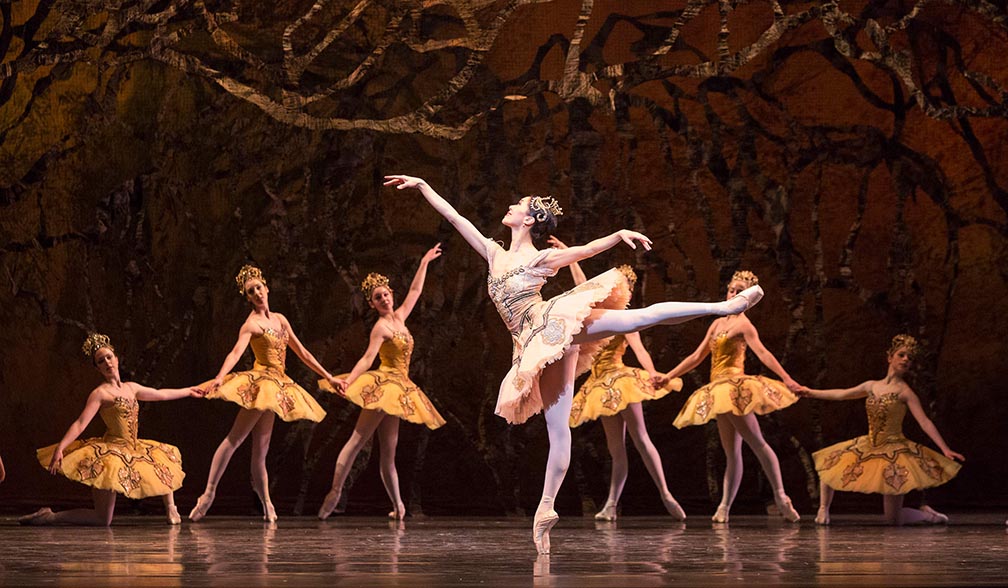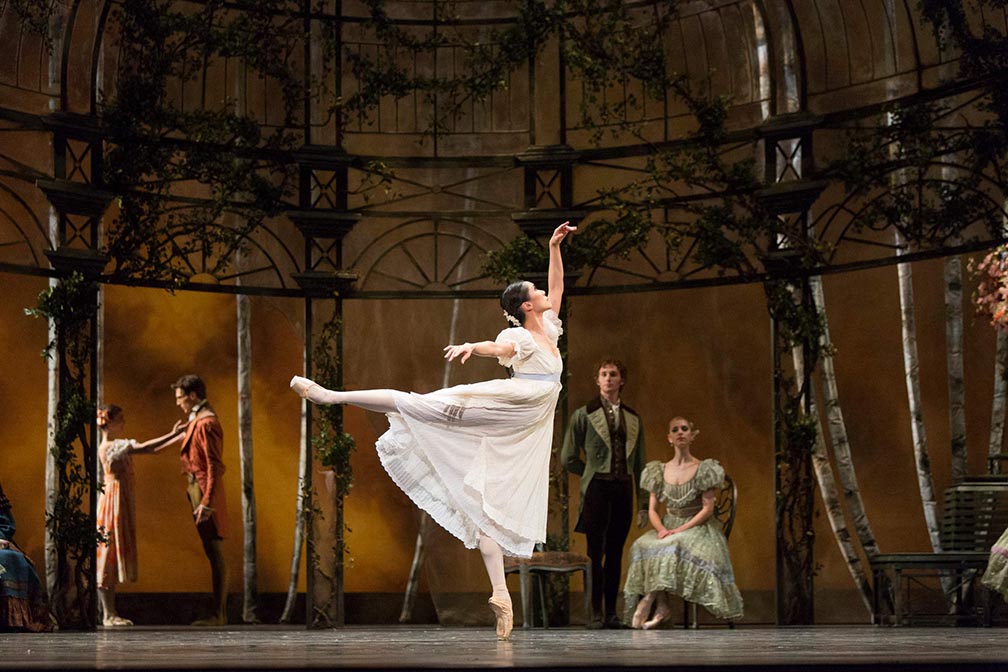After 22 years with the National Ballet of Canada, principal dancer Xiao Nan Yu retired in June. Her farewell piece, The Merry Widow, exemplifies where she is in life—she shares a close resemblance with the protagonist in the drama.

The 19th-century classic The Merry Widow tells the story of a small country on the verge of bankruptcy. To keep the wealth of the rich widow Hanna—Yu’s character—inside the principality, the countrymen desperately set out to find her a husband. Hanna is introduced to Count Danilo, who apparently had been a lover from youth who abandoned her. A series of ridiculous—and hilarious—ups and downs and plot twists ensue.
A Story That’s Bigger Than any One Person
“The heroine of this drama, Hanna, is basically in the same state with me in age, experience, career, and feelings of life,” Yu says. “She is very confident, not affected by external factors, and knows what she wants and what she wants to do.”
Yu says the drama is also a celebration filled with glamour, beautiful costumes, and music; the piece seems bigger than any one person, bigger than life.

“The costumes have very good design and artistic sense. It has the taste of old Shanghai—very retro,” she says. For such a stellar career, it’s fitting that Yu end on a high note. Now in her 40s, she’s been evergreen on the ballet stage for the last couple decades, giving a continual freshness to her roles.
“Self-discipline and the pursuit of perfection are the unique charms of classical art. Only the classics can be pursued endlessly like this.”
The Humble Beginnings
Twenty-four years ago, Yu arrived in Toronto with a scholarship to Canada’s National Ballet School. She was only 17 years old, and had no friends or family in Canada. People from the school waited for the young Yu at the airport holding—not a sign, since she didn’t speak English—but a pair of ballet shoes.
With the welcoming kindness of her friends at Canada’s National Ballet School, and through the universal language of dance, she slowly learned English and acclimated to Western culture. Yu says ballet is an international language, so when she stepped into the studio, she felt at home.

Her focus, like her technique, was razor sharp. She was soon selected as an official dancer, and only four years after that—when it takes most dancers a decade—the director, James Kudelka, promoted her to principal dancer. Yu was surprised, but also excited that he trusted her to be the centre of the show. Determined to not let him down, she worked even harder.
The Art’s Requirements Keep One’s Character Pure
“I learned ballet from a formal class, so I prefer the orthodox and classical state,” she says. “I want to believe that the classic thing is the root for art to be passed down, like Mozart and Bach’s music. They are just beautiful and cannot be changed.”

While ballet is elegant and noble onstage, many dancers find the training to be boring and tedious. With so much focus on repetition, many students give up learning ballet. Yu, however, loves the art’s simplicity and repetitive movements.
“This keeps my character simple and innocent,” she says. “In fact, for me, these practices aren’t boring. The simpler things are, the more you need to constantly explore and express with curiosity.”
Not only must the movements and techniques be practiced repeatedly, but the National Ballet of Canada, like many groups, performs the popular dance dramas over and over. Yu, for example, has played Hanna in The Merry Widow several times in the past two decades.
But each time Yu prepares for a new performance, she carefully perfects and refines her performance to more accurately express the emotions and feelings needed at each moment onstage.

“Ballet is like this. If you can’t do it well today, you have to do it tomorrow. Do it every day until it’s the best,” she says.
“Self-discipline and the pursuit of perfection are the unique charms of classical art. Only the classics can be pursued endlessly like this.”
Ballet teaches patience and inner fortitude that transcend the artform itself. Many actresses and successful in other fields people have learned ballet, including Audrey Hepburn and Vivien Leigh. Ballet gives one a regal and elegant poise, while also teaching the spirit of perseverance.
“Many of my friends do very well in other fields after retiring from the stage,” Yu says. “Maybe I won’t engage in ballet anymore, but my attitude towards things won’t change. I never give up. I always have to do my best.”



Leave a Comment